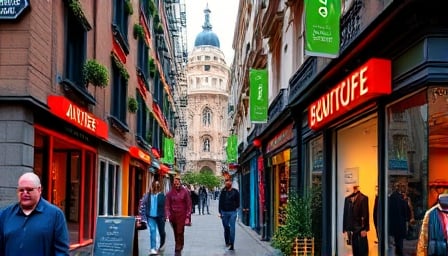LVMH’s Luxury Empire Falters: A Shift in the Global Market
LVMH Moet Hennessy Louis Vuitton SE, the undisputed leader in the luxury goods industry, has suffered a significant setback in its first-quarter sales, sending shockwaves throughout the market. The company’s shares have plummeted, wiping out a substantial portion of its market value, as it failed to meet modest growth expectations set by analysts. A 3% year-on-year drop in organic revenue has led to a decline in its market value, relinquishing its title as the world’s most valuable luxury brand to its arch-rival, Hermès.
The luxury sector as a whole has been impacted by LVMH’s disappointing performance, with its market capitalization decreasing to €246 billion, narrowly trailing behind Hermès at €247 billion. The company’s weak sales in the United States and China have been identified as major contributors to this decline, highlighting the challenges faced by the luxury industry in these key markets.
Key Factors Contributing to LVMH’s Decline
- Weak sales in the United States and China, two of the world’s largest luxury markets
- Failure to meet modest growth expectations set by analysts
- Decline in organic revenue, a key indicator of a company’s financial health
Market Implications
LVMH’s decline has significant implications for the luxury industry as a whole. The company’s market value has taken a substantial hit, with its shares experiencing a substantial drop. This decline is a wake-up call for the luxury sector, highlighting the need for companies to adapt to changing market trends and consumer preferences.
As the luxury industry continues to evolve, LVMH’s performance will be closely watched by investors and analysts. The company’s ability to regain its market share and restore its position as the world’s most valuable luxury brand will be a key focus area in the coming quarters.
